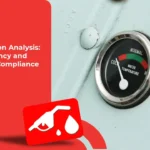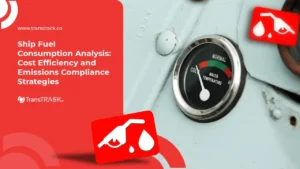Get to Know The Different of Car Engines Types and Their Advantages!
Posted on July 31, 2024 by Nur Wachda Mihmidati

In the automotive world, the type of car engine plays a crucial role in determining performance, efficiency, and driving experience. From classic gasoline engines to cutting-edge technologies such as electric and hydrogen fuel cell engines, each engine type offers different advantages and disadvantages. By understanding these different types of engines, you can make a smarter decision in choosing the vehicle that best suits your needs and lifestyle. Let’s explore the different types of car engines, and find out which one is best for you through this TransTRACK article!
What is a car engine?
A car engine is the main component of a vehicle that converts energy from fuel into mechanical power. The engine works on the basic principle of internal combustion, where fuel (such as gasoline or diesel) is mixed with air and burned inside a cylinder to produce power. This process involves several steps:
- Withdrawal: Air and fuel enter the cylinder.
- Compression: The air and fuel mixture is compressed by the piston to increase its efficiency.
- Combustion: The compressed mixture is ignited by spark plugs (in gasoline engines) or by pressure (in diesel engines), producing energy that moves the piston.
- Exhaust: Combustion gases are expelled from the cylinders through the exhaust system.
The power generated by the engine is then used to drive the wheels of the car and operate various systems in the vehicle. Car engines can be gasoline, diesel, or hybrid engines that combine various power sources.
What are the different types of car engines?
There are several types of commonly used car engines, each with different characteristics and applications:
Gasoline (Petrol) Engine
Uses gasoline as fuel with an internal combustion system ignited by spark plugs. These engines provide smooth and responsive performance, ideal for everyday driving. However, gasoline engines tend to be less efficient in terms of fuel consumption than diesel engines.
Diesel Engine
Uses diesel as fuel and is known for its high torque and better fuel efficiency. These engines are often used in heavy vehicles and for applications that require extra power. Although more efficient, diesel engines can produce more nitrogen oxide and particulate emissions.
Hybrid Engine
Combines a gasoline engine with an electric motor to improve fuel efficiency and reduce emissions. Hybrid vehicles can operate using gasoline power, electric power, or a combination of both, depending on driving conditions. They offer a balance between performance and fuel efficiency.
Electric Engine (EV)
Uses an electric motor operated by a battery without the need for fossil fuels. Electric vehicles have very low emissions and cheaper running costs, but often require adequate battery charging infrastructure. These engines provide fast acceleration and quiet operation.
Hydrogen Fuel Cell Engine
Uses hydrogen as fuel to generate electricity through a chemical reaction in a fuel cell. These engines produce very low emissions, only water vapor, and offer good mileage. Vehicles with this technology are still relatively expensive and require limited hydrogen refueling infrastructure.
Rotary (Wankel) Engine
Uses a different design from conventional piston engines, with a rotor that rotates within the combustion chamber. These engines are compact and lightweight, and offer smooth power, but are less efficient in fuel consumption. Rotary engines can also have issues with emissions and durability.
Each engine type has advantages and disadvantages depending on the needs and intended use of the vehicle.
Pros and Cons of Each Engine Type
Here are the advantages and disadvantages of each type of car engine:
Petrol Engine
Pros:
- Smooth and responsive performance with good acceleration.
- Maintenance costs are generally lower than diesel engines.
- Gasoline combustion technology is simpler and cheaper to produce.
Disadvantages:
- Fuel consumption is usually higher than diesel engines.
- Emissions of carbon dioxide (CO2) and other pollutants are higher than diesel engines.
- Lower fuel efficiency, especially at high speeds.
Diesel Engine
Pros:
- Better fuel efficiency and high torque, ideal for heavy vehicles.
- Generally more durable and have a longer service life.
- Lower CO2 emissions compared to gasoline engines.
Disadvantages:
- Higher production of nitrogen oxides (NOx) and particulates, which can contribute to air pollution.
- Diesel engines tend to make more noise and vibrate than gasoline engines.
- Maintenance and parts costs can be higher.
Hybrid Engine
Pros:
- Combination of gasoline engine and electric motor improves fuel efficiency.
- Reduces exhaust emissions and air pollution.
- Allows operating in pure electric mode at low speeds, reducing gasoline consumption.
Disadvantages:
- Higher initial cost compared to conventional vehicles.
- Maintenance of the battery and hybrid system can add to the cost.
- Performance may degrade if the battery system is not properly maintained.
Electric Engine (EV)
Pros:
- Zero emissions during operation, very environmentally friendly.
- Lower running and maintenance costs as there is no engine oil and moving mechanical parts.
- Fast acceleration and very quiet operation.
Disadvantages:
- Limited mileage depending on battery capacity.
- Charging infrastructure is still developing, which can cause problems on long-distance trips.
- The initial cost of purchasing an electric vehicle can be higher than a conventional vehicle.
Hydrogen Fuel Cell Engine
Pros:
- Very low emissions, produces only water vapor.
- Good mileage and fast refueling.
- Fuel cell technology offers high efficiency and good performance.
Disadvantages:
- Hydrogen refueling infrastructure is still very limited.
- Production and maintenance costs of fuel cell vehicles tend to be higher.
- Hydrogen production and transportation processes can involve emissions if not using renewable energy sources.
Rotary (Wankel) Engine
Pros:
- Compact and lightweight design, providing smooth and responsive power.
- Reduced number of moving parts compared to piston engines, which reduces friction and wear.
- Smooth performance with fast acceleration.
Disadvantages:
- Lower fuel efficiency compared to conventional engines.
- Emissions of CO2 and other pollutants can be higher.
- Maintenance and repairs can be more complex and expensive.
Understanding the different types of car engines is an important step in choosing a vehicle that suits your needs. Each type of engine, from gasoline and diesel to hybrid and electric, has its own advantages and disadvantages that can affect the vehicle’s performance, efficiency and running costs.
To ensure your vehicle stays in the best condition possible, it is important to maintain proper maintenance. With TransTRACK’s Vehicle Maintenance System, you can monitor engine conditions in real-time, schedule preventive maintenance, and avoid problems before they become major breakdowns.
Don’t wait for problems to arise-optimize your vehicle’s performance with TransTRACK’s advanced technology. Contact us today for more information and take your vehicle management to the next level!
Recent Post
Topic :
 Bahasa Indonesia
Bahasa Indonesia









